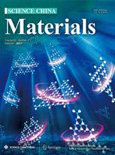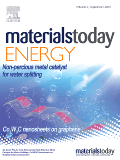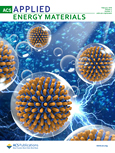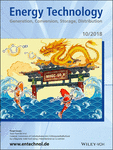
EnergyChem
Scope & Guideline
Catalyzing Change through Open Access Energy Research.
Introduction
Aims and Scopes
- Sustainable Energy Production:
Research that explores new methods and materials for generating energy sustainably, including solar fuels, biofuels, and other renewable resources. - Advanced Energy Storage Technologies:
Investigations into novel materials and systems for energy storage, including batteries, supercapacitors, and other electrochemical devices. - Catalysis in Energy Applications:
Studies on various catalytic processes that enhance energy conversion efficiency, including electrocatalysis, photocatalysis, and thermocatalysis. - Material Innovation for Energy Solutions:
Development of new materials, such as metal-organic frameworks (MOFs), covalent organic frameworks (COFs), and nanostructured materials, aimed at improving energy efficiency and sustainability. - Interfacial and Structural Engineering:
Research focused on the design and engineering of interfaces and structures within materials to optimize their performance in energy applications.
Trending and Emerging
- Photocatalysis and Solar Fuels:
A significant increase in research related to photocatalysts for CO2 conversion and solar fuel production indicates a growing interest in harnessing solar energy for sustainable applications. - Single-Atom Catalysis:
Emerging studies on single-atom catalysts are gaining traction, highlighting their potential to enhance electrocatalytic processes for energy conversion and storage. - Advanced Materials for Energy Storage:
Research on novel materials, such as MXenes and covalent organic frameworks, for use in energy storage technologies is trending, reflecting the need for improved efficiency and safety. - Interfacial Engineering Techniques:
There is a growing focus on interfacial engineering, particularly in battery technologies and electrocatalysis, to improve performance and longevity of energy devices. - Sustainable Chemical Processes:
An increasing number of publications are dedicated to sustainable chemical processes, including CO2 utilization and waste-to-energy conversion, emphasizing the journal's commitment to environmental sustainability.
Declining or Waning
- Traditional Fossil Fuel Chemistry:
Research focused on traditional methods for fossil fuel extraction and processing has become less prominent, as the journal shifts towards more sustainable and renewable energy sources. - Conventional Battery Technologies:
Studies centered on older battery technologies, such as lead-acid or Ni-Cd batteries, are declining in favor of advanced lithium-ion and next-generation battery systems. - Basic Theoretical Studies Without Practical Applications:
Papers that focus solely on theoretical aspects without clear applications in energy systems are becoming less common, as the journal emphasizes practical and applied research. - Low-efficiency Photovoltaic Systems:
Research on older photovoltaic technologies that do not meet current efficiency standards is waning, with a shift towards more efficient materials and innovative solar technologies.
Similar Journals

Carbon Energy
Advancing sustainable solutions for a greener tomorrow.Welcome to Carbon Energy, an esteemed open-access journal published by WILEY that focuses on cutting-edge research in the field of energy and materials science. Since its inception in 2019, this journal has quickly established itself as a leading platform for disseminating impactful findings and innovations related to carbon-based energy solutions, renewable resources, and sustainability practices. With its impressive Q1 rankings in multiple categories—including Energy (miscellaneous), Materials Chemistry, and Renewable Energy—Carbon Energy is recognized for delivering high-quality, peer-reviewed content that meets the rigorous standards of the academic community. Through its open-access model, the journal ensures wide accessibility of research findings, making it an invaluable resource for researchers, professionals, and students alike. As we look toward the future, Carbon Energy aims to further its mission of advancing sustainable energy technologies and promoting interdisciplinary collaboration in tackling global energy challenges.

Advanced Energy and Sustainability Research
Unlocking Potential in Energy and Sustainability ResearchAdvanced Energy and Sustainability Research is a leading open-access journal published by WILEY since 2020, dedicated to advancing knowledge and understanding in the realms of energy and sustainability. With an impressive impact factor and a commitment to high-quality, peer-reviewed research, this journal serves an international audience of researchers, professionals, and students passionate about addressing critical environmental challenges. The journal encompasses a wide array of topics within environmental science and energy fields, securing notable rankings in Scopus with top percentiles across several categories, including Ecology, Energy Engineering and Power Technology, and Waste Management. Given its open-access model, Advanced Energy and Sustainability Research facilitates the dissemination of cutting-edge research, enhancing accessibility and fostering collaboration within the scientific community. This journal not only plays a pivotal role in shaping public policy and industry practices but also aims to inspire innovative solutions for sustainable development in an increasingly complex world.

Science China-Materials
Leading the Charge in Materials Research Excellence.Science China-Materials is an esteemed peer-reviewed journal dedicated to advancing the field of materials science, published by SCIENCE PRESS. With a strong focus on innovative research and applications, this journal provides an essential platform for disseminating groundbreaking findings in materials development, characterization, and engineering. Since its inception, Science China-Materials has achieved an impressive Q1 ranking in the Materials Science (miscellaneous) category, reflecting its commitment to quality and the impact of its publications, as indicated by its 86th percentile ranking in Scopus. The journal is set to converge its contributions from 2016 to 2024, making it a vital resource for researchers and professionals interested in the latest advancements and trends in materials science. As an open access publication, it ensures that knowledge is freely available to a global audience, promoting collaboration and innovation across disciplines. The journal is headquartered in Beijing, China, and continues to attract high-quality submissions from leading experts in the field.

Materials Today Energy
Pioneering Research at the Intersection of Materials and EnergyMaterials Today Energy is a premier journal published by Elsevier, focusing on the interdisciplinary field of energy materials. With an ISSN of 2468-6069, the journal is renowned for its impactful research as evidenced by its impressive Q1 quartile rankings in multiple categories including Energy Engineering and Power Technology, Fuel Technology, and Renewable Energy. It stands out with strong Scopus rankings, highlighting its significance in the respective research communities, such as being ranked 3rd in Nuclear Energy and Engineering. Established from 2016 to 2024, the journal aims to provide a platform for innovative research that addresses the global demands for sustainable energy solutions. Although it is not open access, Materials Today Energy is accessible to a broad audience, encouraging collaborations among researchers, professionals, and students in the pursuit of advancing materials science and energy technologies. This makes it an essential resource for those looking to remain at the forefront of discoveries that shape the future of energy.

Materials Chemistry Frontiers
Bridging Science and Innovation in Materials ChemistryMaterials Chemistry Frontiers, published by the esteemed Royal Society of Chemistry, stands as a leading journal in the realm of materials science and chemistry, with an impressive Q1 ranking in both Materials Chemistry and Materials Science categories as of 2023. This open-access journal, operating from the United Kingdom, offers a platform for researchers, professionals, and students to disseminate high-quality, impactful research. With its E-ISSN 2052-1537, the journal is dedicated to publishing cutting-edge articles, reviews, and research communications that explore innovative materials and their applications, fostering a comprehensive understanding of the complex interplay between materials and their chemical properties. With consistent rankings in the Scopus metrics, being positioned at the 25th percentile among 317 in the Materials Chemistry category, it highlights its pivotal role in advancing the field. The journal thrives on contributions that broaden the scope of knowledge from 2017 to 2024 and beyond, solidifying its status as an essential resource for contemporary research in materials science.

ACS Applied Energy Materials
Exploring Cutting-edge Advances in Energy SystemsACS Applied Energy Materials, published by the American Chemical Society, is a premier journal dedicated to the cutting-edge fields of energy materials, chemical engineering, and electrochemistry. With an impressive impact factor and consistently ranked in the Q1 category across multiple disciplines—including Chemical Engineering, Electrical and Electronic Engineering, and Materials Chemistry—this journal serves as a pivotal platform for researchers and professionals focused on innovative solutions for energy systems and materials science. Since its inception in 2018, ACS Applied Energy Materials has been committed to disseminating high-quality research that addresses pressing energy challenges, promoting sustainability and efficiency in various applications. Its competitive Scopus rankings reflect the journal's influence and relevance within the academic community, making it an essential resource for anyone looking to stay at the forefront of energy materials research.

eScience
Championing Open Access for Global Scientific ProgresseScience, published by KEAI PUBLISHING LTD, is an innovative open-access journal that has rapidly established itself as a leading platform in the fields of Electrochemistry, Materials Chemistry, and Renewable Energy, Sustainability, and the Environment. Since its inception in 2021, eScience has garnered recognition for its high-quality research, achieving an impressive Q1 ranking in each of its primary categories as of 2023. With a remarkable Scopus ranking—placing it among the top percentile of journals in these disciplines—eScience serves as an essential resource for researchers and practitioners aiming to advance knowledge and application in sustainable practices and materials innovation. As an open-access journal, eScience supports widespread dissemination of vital research, ensuring accessibility for all, which is critical in addressing contemporary global challenges. The journal's commitment to fostering interdisciplinary dialogue and collaboration positions it as a cornerstone for those dedicated to pushing the boundaries of scientific discovery.

Energy Technology
Advancing the Future of Energy InnovationEnergy Technology, published by Wiley-VCH Verlag GmbH, is a prominent peer-reviewed journal dedicated to advancing the field of energy research and technology. With an ISSN of 2194-4288 and an E-ISSN of 2194-4296, this journal has made a significant impact in the energy sector, holding a Q2 category ranking in the Energy (miscellaneous) category for 2023, and proudly positioned in the 77th percentile within the Scopus ranking for General Energy. Since its inception in 2013, Energy Technology has consistently published cutting-edge research, innovations, and reviews that cater to a wide array of topics including renewable energy, sustainable technologies, and energy efficiency. The journal does not offer open access, yet it remains a key resource for researchers, professionals, and students who are committed to exploring the dynamic field of energy. The journal's efforts to disseminate rigorous scholarship make it an invaluable asset for anyone looking to contribute to or understand the future of energy-related technologies until 2024.

Energy & Environmental Materials
Bridging Science and SustainabilityEnergy & Environmental Materials, published by WILEY, is an esteemed academic journal dedicated to pioneering research in the multifaceted domains of energy, environmental science, and materials science. Since its inception in 2018, this journal has rapidly established itself as a leading platform, holding a prestigious Q1 ranking across multiple categories including Renewable Energy, Sustainability, and Waste Management, reflecting its significant contributions to advancing knowledge in these critical areas. With a robust Scopus ranking that positions it in the top percentile for Environmental Science and Materials Science, it caters to a diverse audience of researchers, professionals, and students seeking cutting-edge findings and practical applications in energy efficiency and sustainable materials. This open-access journal facilitates the dissemination of innovative research and aims to bridge the gap between scientific exploration and real-world solutions for a sustainable future. The editorial team encourages submissions that explore both theoretical and practical aspects, ensuring that every publication not only contributes to the academic landscape but also drives impactful change in energy and environmental practices.

EcoMat
Leading the charge in eco-conscious chemistry innovations.EcoMat, published by WILEY, stands as a cornerstone in the interdisciplinary fields of Chemistry and Materials Science. Since its inception in 2019, this Open Access journal has quickly garnered a prestigious reputation, achieving Q1 category rankings across various fields, including miscellaneous chemistry and physical and theoretical chemistry. With Scopus rankings reflecting its impact—ranked #7 in both Physical and Theoretical Chemistry and Chemistry (miscellaneous)—EcoMat publishes cutting-edge research that addresses critical challenges in material sustainability and innovation. Researchers, professionals, and students alike benefit from the rich content accessible from its Hoboken, NJ location, exemplifying a commitment to enhancing scholarly communication and collaboration whilst advancing the frontiers of material sciences and chemistry.